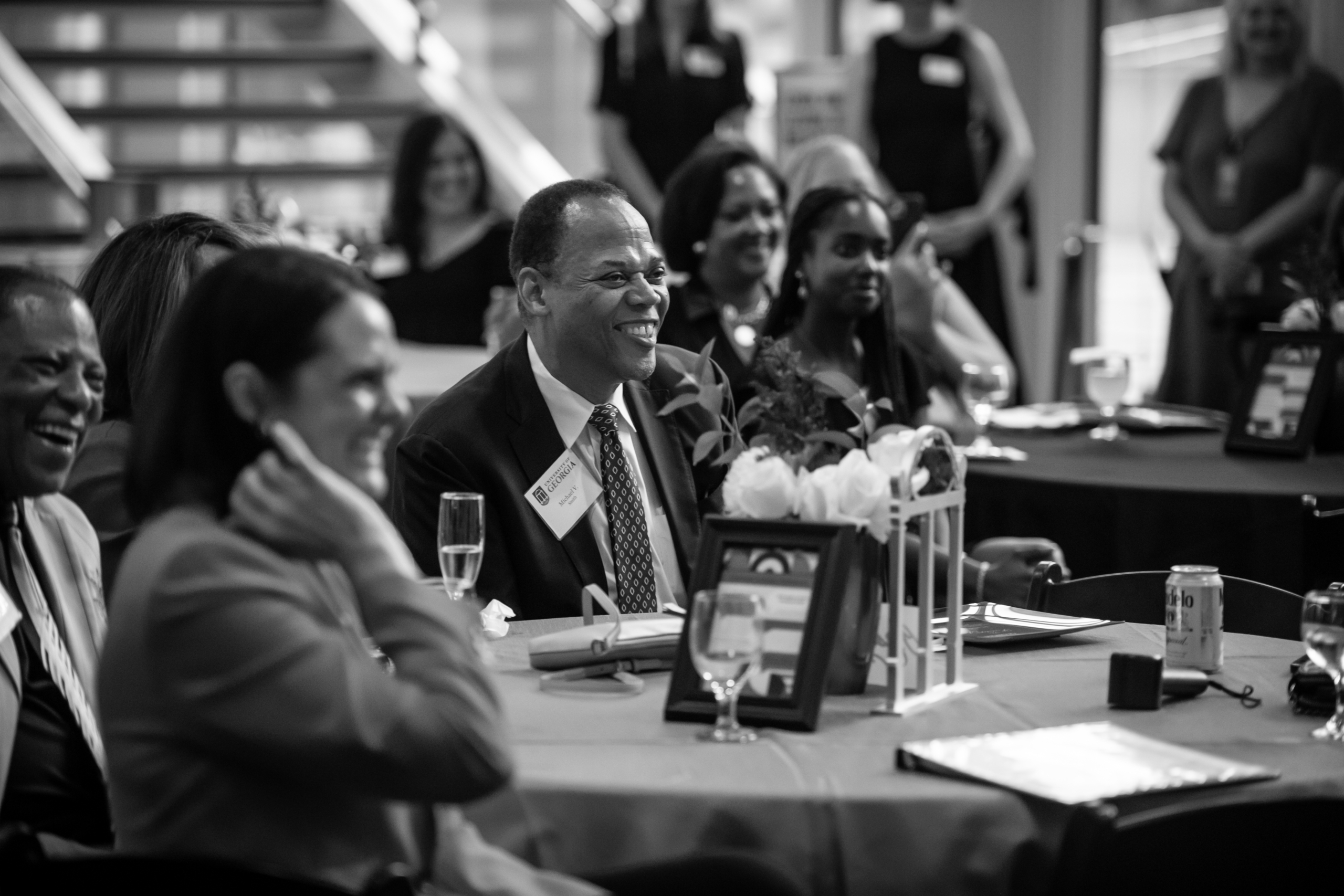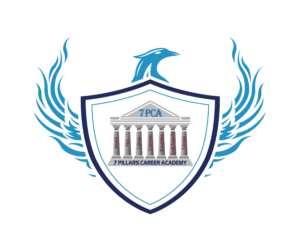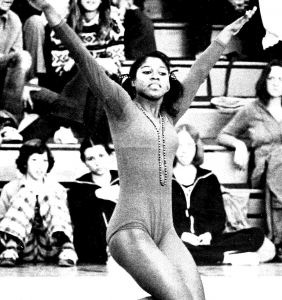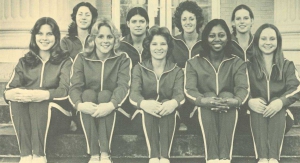Health founder, CEO receives 2025 Footsteps Award at annual celebration
By: Rachael Andrews and Gabby Adekogbe
Dr. Michael V. Smith (BSA ’79) was selected as the 2025 Footsteps Award recipient, in honor of his impact on the community. The award is named to recognize the three students who helped to integrate the university in the 1960s: Charlayne Hunter-Gault, Hamilton Holmes and Mary Frances Early, and honors alumni who follow in the footsteps of these trailblazers. Smith was chosen by a committee of University of Georgia faculty, staff and students.
Smith is the CEO and founder of Marti Health, an innovative health care platform dedicated to improving the quality and consistency of health care for at-risk populations, including those with sickle cell disease and their caregivers. Previously, as chief of cardiothoracic surgery at the former Atlanta Medical Center, Smith launched the first early-detection lung cancer program in Georgia.
Smith — in addition to being a member of the UGA Board of Visitors — has also committed to improving the student experience through supporting scholarships. Smith himself was the recipient of a scholarship during his time as a Bulldog, which eventually led him to give back to UGA. He has established several need-based scholarships to support at-risk students to continue their academic journey at the university.
“I know there are students who leave every year not because they’re not academically competitive, but because they are just not financially able to support themselves,” Smith said in a recent UGA Alumni spotlight. “The idea is that there will be, in perpetuity, academically capable kids who won’t be hampered by financial obstacles because those who benefitted before them paid it forward.”

In addition to honoring Dr. Smith, the event also celebrated reaching $1 million in the Black Alumni Scholarship Fund endowment.
“The University of Georgia is lucky to call someone like Dr. Smith an alum of our institution,” said Jill Walton, vice president for development and alumni relations. “His work bridging gaps not only in health care, but also in student support at the university has been so inspiring to witness. His compassion, care and commitment to his patients, community and our students is something we hope for all of our alumni to embody.”
Last year, retired Georgia Supreme Court Chief Justice Robert Benham was honored with the Footsteps Award, following Richard Dunn and Xernona Thomas in 2023 and Eugenia Harvey in 2022.
Smith was honored during the annual 1961 Club Celebration on June 13 in Athens, which held particular significance this year as the Black Alumni Scholarship Fund — supported by members of the 1961 Club — surpassed $1 million. The fund was launched in 1981 with a gift from James Simmons, Jr. and Horatio Lanier (ABJ ’77) and has grown thanks to generous support from a dedicated group of alumni, faculty and thousands of donors.
Members of the 1961 Club contribute gifts of $19.61, $196.10, or $1,961, making giving accessible to all UGA alumni, friends and students.
To date, the BASF has supported numerous students who exhibit promising leadership qualities. Among them is Jordan Howard ’26, a computer systems engineering major.
“When I first received the scholarship, it meant a lot to me because it brought me closer to my goal of graduating debt-free,” said Howard. “It also had a big impact on my experience at UGA, allowing me to pursue opportunities I might have had to pass up if I had been working to cover expenses.”
Ericka Bayonne (AB ’93), who played a pivotal role in the creation of the 1961 Club, envisioned a giving program that honored UGA’s trailblazers and made a lasting impact.
“Legacy, pride, and the future. We stand on the shoulders of those who came in 1961 — Charlayne Hunter-Gault, Hamilton Holmes and Mary Frances Early,” said Bayonne. “We want alumni to walk away with a deep sense of pride in that legacy, understanding that the work is far from over. It’s about passing the baton to the students who will follow in our footsteps.”









